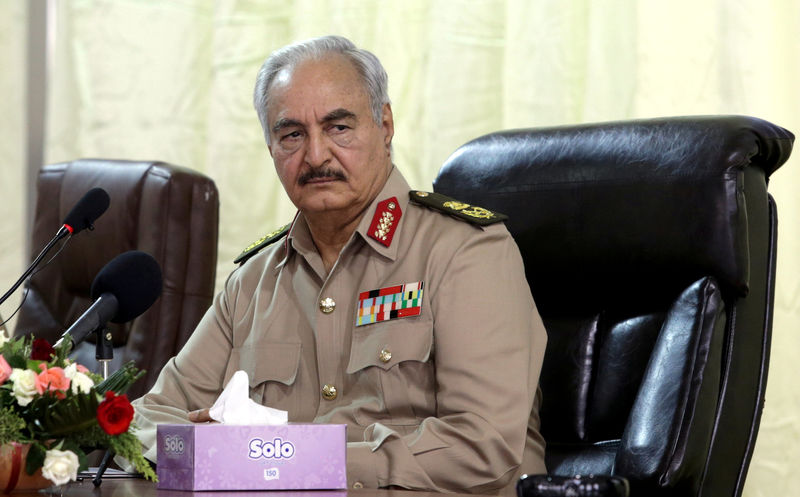BENGHAZI/LONDON, Libya (Reuters) - Libya's Es Sider oil port shut on Thursday due to armed clashes in the area and at least one storage tank in the neighbouring Ras Lanuf terminal was set alight, an engineer told Reuters.
Loadings were suspended at Ras Lanuf, according to a local shipping agent.
The clashes between forces loyal to Khalifa Haftar's Libyan National Army (LNA) and rival armed groups were taking place south of Ras Lanuf, where the LNA was targeting its rivals with air strikes, local sources said.
The LNA took control of Es Sider and Ras Lanuf along with other oil ports in Libya's oil crescent in 2016, allowing them to reopen after a long blockade.
Storage tanks at both terminals were badly damaged in previous fighting and have yet to be repaired, though there has been regular loadings from Es Sider.
A military source said the three-pronged attack was launched by the Benghazi Defence Brigades (BDB), a group that has previously tried to take the oil crescent and advance on Benghazi, which has been fully controlled by Haftar since late last year.
The clashes were not affecting any oilfields, the source said.
A local resident said he had heard the sound of heavy clashes and air strikes at dawn and had seen a large fire at the Ras Lanuf tank farm.
Crude exports from Ras Lanuf stood at 110,000 bpd in May, while exports from Es Sider were around 300,000 bpd, according to oil analytics company Vortexa.
The Minerva Lisa oil tanker, which was due to arrive at Es Sider to load a crude cargo on Thursday was advised to stay outside the port, a source familiar with the matter said.
The tanker, chartered by trader Petraco, was seen turning away from the port on Thursday morning without loading, according to Reuters ship tracking.
The Seascout is expected to arrive at the port on June 18.
Libya's oil production recovered last year to just over 1 million barrels per day (bpd) and has been mostly stable, though it remains vulnerable to shutdowns and blockades at oil facilities.
National output is still well under the more than 1.6 million bpd Libya was producing before a 2011 uprising led to political fragmentation and armed conflict.
